Rugs are functional elements in our homes and aesthetic pieces that add warmth and character to our living spaces. However, one common issue many rug owners face is unpleasant odours from their beloved floor coverings. Understanding the reasons behind rug smells and adopting effective cleaning techniques is crucial to maintaining a fresh and inviting home environment. This comprehensive guide will explore various factors contributing to rug odours, explore different cleaning methods, and provide practical tips for preventing and addressing this common issue.
Why There is a Need to Address Rug Odors?
A foul-smelling rug can have a significant impact on the overall ambience of a room. Beyond the obvious discomfort, unpleasant odours may indicate underlying issues that could affect the rug's lifespan and hygiene. Ignoring these odours can lead to persistent problems such as mould and bacteria growth, compromising the rug's appearance and the well-being of those inhabiting the space.
Types of Rugs
Before diving into the reasons behind rug odours, it's essential to understand the types of materials commonly used in rug manufacturing. The two primary categories are natural fibres and synthetic fibres.
Natural Fibers
Rugs crafted from natural fibres, such as wool, jute, or cotton, are known for their luxurious feel and organic appeal. However, these materials can be more susceptible to odours if improperly maintained. Shop shaggy rugs from Inspire Homeware.
Synthetic Fibers
Rugs made from synthetic materials like nylon, polyester, or polypropylene are generally more resistant to odours and stains. However, they are not immune to unpleasant smells, and certain factors can still lead to odour-related issues.
Why Does Your Rug Smell?
A. Pet Accidents
Pets are beloved family members, but their accidents can contribute significantly to rug odours. Urine, in particular, can penetrate deep into rug fibres, creating a breeding ground for bacteria and unpleasant smells.
B. Mold and Mildew
Exposure to moisture, whether from spills, leaks, or high humidity levels, can lead to the growth of mould and mildew in rugs. These fungi not only cause odours but can also pose health risks.
C. Food and Liquid Spills
Accidental spills of food and liquids on rugs can result in lingering smells. If not promptly and adequately cleaned, these spills can attract bacteria and become a persistent source of unpleasant odours.
D. High Humidity
Rugs in high-humidity environments are more prone to developing musty odours. The excess moisture encourages the growth of mould and mildew, making regular maintenance crucial.
E. Bacteria in Rugs
Over time, rugs can accumulate bacteria from various sources, including foot traffic, spills, and pet activities. These bacteria can produce foul odours if not addressed through proper cleaning methods.
F. Fungi in Rugs
Apart from mould and mildew, other fungi may find their way into rugs, especially in damp conditions. These fungi contribute to unpleasant smells and can affect indoor air quality. Shop cashmere rugs from Inspire Homeware.
Cleaning Techniques
A. Regular Vacuuming
Regular vacuuming is one of the simplest and most effective ways to prevent and address rug odours. This removes dirt, dust, and debris, contributing to unpleasant smells. Pay special attention to high-traffic areas and ensure that the vacuum cleaner is equipped with a clean filter.
B. Professional Cleaning Services
For a deeper and more thorough cleaning, consider professional rug cleaning services. Professionals have the expertise and equipment to effectively remove stubborn stains, odours, and allergens. Schedule professional cleaning periodically, especially if your rug has faced significant spills or accidents.
DIY Odor Removal Hacks
A. Baking Soda Solution
Baking soda is a versatile and cost-effective solution for neutralising odours. Sprinkle a generous amount of baking soda over the rug's surface, let it sit for a few hours, and then vacuum it up. Baking soda absorbs and eliminates unpleasant smells, leaving your rug fresh.
B. White Vinegar Solutions
White vinegar is known for its natural cleaning properties. Mix white vinegar and water in a spray bottle and lightly mist the rug. Allow it to air dry, and the vinegar will help neutralise odours. Ensure proper ventilation during this process.
C. Sun and Fresh Air Exposure
Take advantage of sunny days by taking your rug outdoors for sun exposure. UV rays have natural disinfectant properties and can help eliminate bacteria and odours. Additionally, allowing your rug to air out in an open space can freshen it up.
Rug-Specific Cleaning Products
A. Enzymatic Cleaners
Enzymatic cleaners are designed to break down organic matter, including pet stains and odours. Look for enzyme-based rug cleaners that target specific sources of smells, providing a thorough and effective solution.
B. Odor Neutralizers
Odour neutralisers are formulated to eliminate rather than mask odours. Choose safe products for your specific rug material and follow the instructions carefully for optimal results.
C. Natural Remedies
Explore natural remedies such as essential oils or herbal sachets to infuse a pleasant fragrance into your rug. Be cautious with solid scents, ensuring they complement rather than overpower the room.
Preventive Measures For Rug Hygiene
A. Use of Rug Pads
Investing in rug pads enhances comfort underfoot and provides a protective barrier between the rug and the floor. Rug pads prevent moisture accumulation, reduce wear and tear, and make cleaning easier.
B. No-Shoe Policy
Implementing a no-shoe policy in some regions of your home can significantly reduce the amount of dirt and contaminants brought onto rugs. Provide a designated space for shoes near the entrance to encourage compliance.
C. Regular Sun Exposure
Whenever possible, expose your rugs to natural sunlight. Sunlight helps eliminate odours and is a natural disinfectant, keeping carpets fresh and hygienic.
Rug Material-Specific Tips
A. Wool Rug Care
Wool rugs require special care to maintain their quality and prevent odours. Avoid excessive moisture, use a low-heat setting on vacuums, and consider professional cleaning services for thorough maintenance.
B. Nylon Rug Care
Nylon rugs are durable and resistant to stains but can still develop odours. Regular vacuuming and prompt stain removal are essential for nylon rug care. Follow the care instructions provided by the manufacturer.
C. Polyester Rug Care
Polyester rugs are known for their resistance to fading and stains. However, they can trap odours over time. Vacuum regularly, use appropriate cleaning solutions, and ensure proper ventilation to keep your polyester rug smelling fresh. Shop printed rugs from Inspire Homeware.
Conclusion
Addressing and preventing rug odours is essential for maintaining a clean, inviting, and healthy home environment. By understanding the various factors contributing to unpleasant smells and adopting effective cleaning techniques, you can prolong the life of your rug and enjoy a fresh living space. Whether you opt for professional cleaning services, DIY hacks, or preventive measures, taking proactive steps will ensure that your rugs look great and smell fresh for years.
FAQs
Can I Use Any Cleaning Product On My Rug?
It's crucial to choose cleaning products suitable for your rug's material. Always check the manufacturer's recommendations and perform a spot test in an inconspicuous area before using any product.
Can I Use Essential Oils On My Rug To Add Fragrance?
Yes, essential oils can be a natural and pleasant way to add fragrance to your rug. However, exercise caution and use them sparingly to avoid overpowering scents. Dilute essential oils with water and apply them lightly, allowing the rug to air out thoroughly.
How Do I Choose The Right Rug Pad?
Select a rug pad suitable for your flooring type and complements your rug material. Non-slip rug pads are ideal for keeping your rug in place, while those with moisture barriers can prevent damage from spills and accidents. Be sure to trim the pad to fit your carpet correctly.
Is Sun Exposure Safe For All Types Of Rugs?
While sun exposure is generally beneficial for eliminating odours and bacteria, excessive sunlight can cause fading in some rug materials. Monitor your rug's sunlight and rotate it periodically to ensure even exposure. If fading becomes a concern, consider using window treatments to filter sunlight.
Can Rugs Be Cleaned In A Washing Machine?
It depends on the rug size, material, and care instructions. Small, machine-washable rugs made of durable materials may be suitable for washing machines. However, more oversized or delicate rugs may require professional cleaning to avoid damage. Always check the manufacturer's guidelines before cleaning your rug in a washing machine.


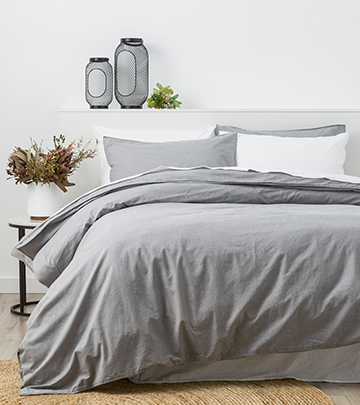
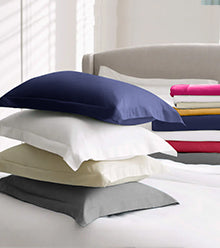
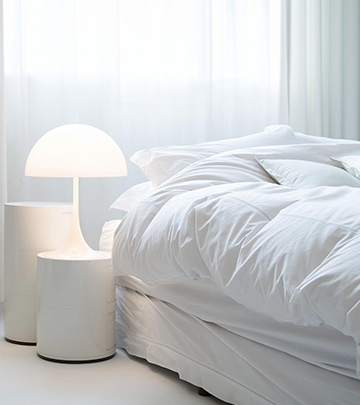
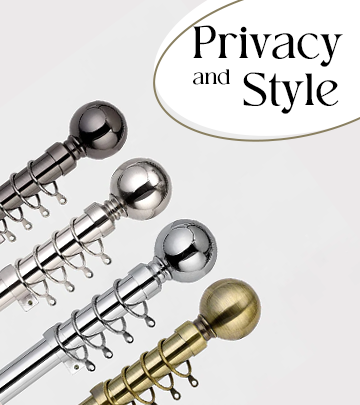

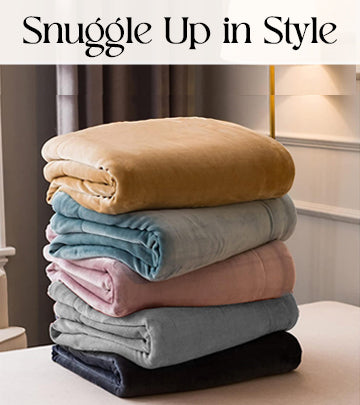

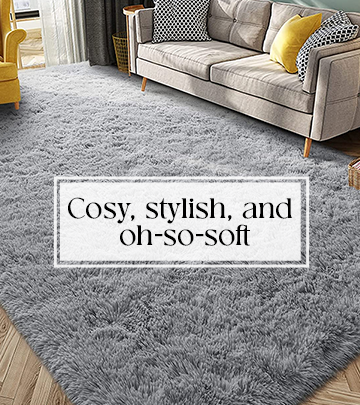













Leave a comment
This site is protected by reCAPTCHA and the Google Privacy Policy and Terms of Service apply.